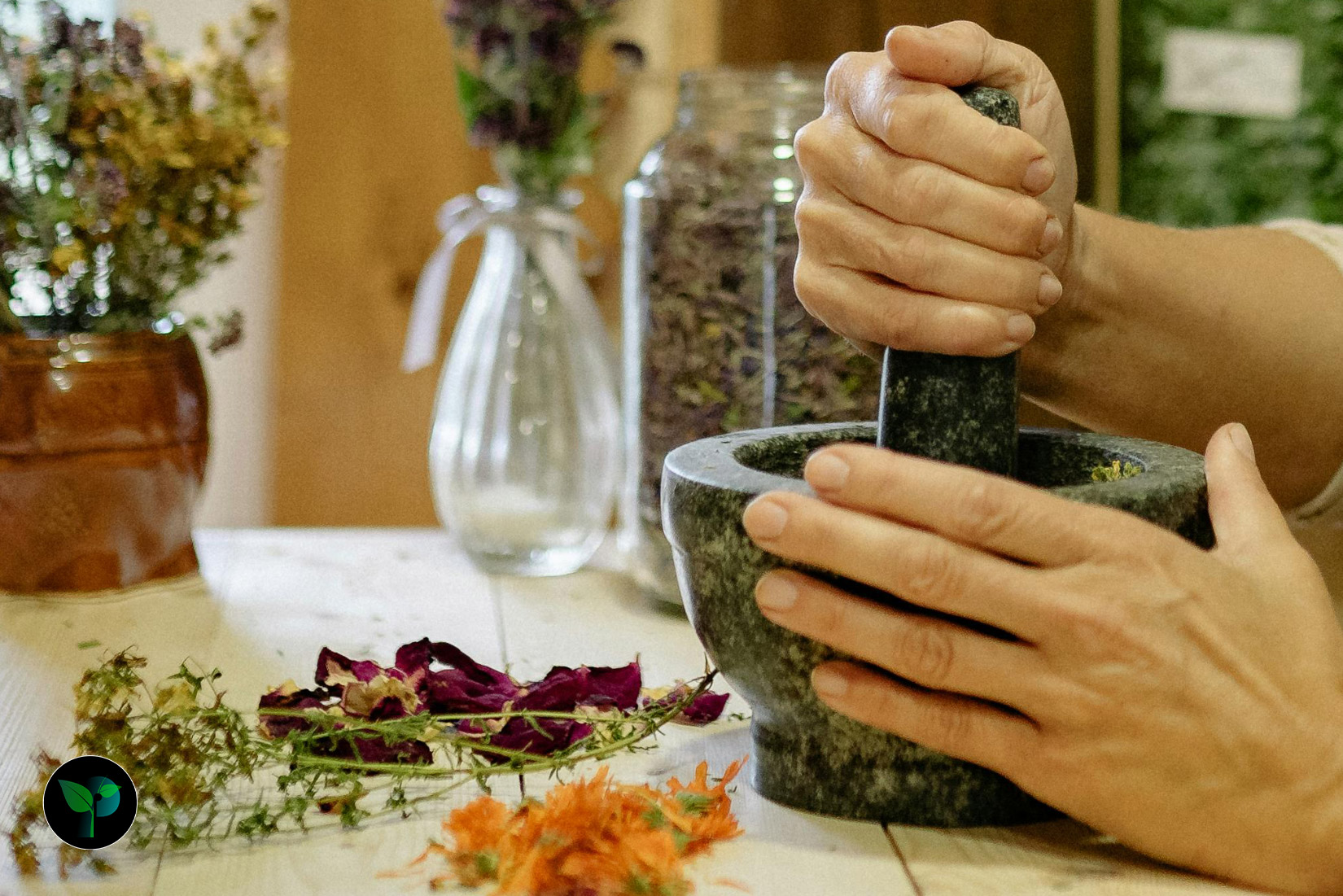Welcome to Plants Folder, your go-to source for all things green and growing! Today, we’re delving into the aromatic world of mixed herbs, those versatile green wonders that have the power to transform our gardens into lush sanctuaries and our meals into culinary masterpieces. Whether you’re a seasoned gardener or a kitchen novice, understanding how to cultivate and use mixed herbs can enhance your green thumb reputation and your cooking prowess. Join us as we explore the myriad of uses for mixed herbs, unraveling the essence of their flavors, health benefits, and the simple joys they bring to our everyday lives.

Understanding Mixed Herbs
Mixed herbs are a combination of various aromatic plants that are used together to create a symphony of flavors. These can include a variety of common herbs such as basil, thyme, oregano, parsley, rosemary, and others. Each herb brings its unique profile to the mix, and when combined, they can complement and enhance each other, creating a well-rounded flavor that can add depth to many dishes.
Cultivating Your Mixed Herb Garden
For those with a green thumb or those looking to develop one, cultivating a mixed herb garden is rewarding and practical. These herbs add beauty to your garden with their varied textures and colors invite beneficial insects, promote biodiversity, and provide fresh ingredients for your kitchen.
Choosing the Right Herbs for Your Garden
When selecting herbs for your garden, consider the climate, soil type, and sunlight availability. Most herbs thrive in well-draining soil and full to partial sunlight. It’s also essential to think about the compatibility of the herbs you’re planting together, as some may require more water or different soil pH levels.
Planting and Maintenance Tips
To plant mixed herbs, start with either seeds or seedlings. Space them out according to their size at maturity to prevent overcrowding. Regular pruning is crucial for encouraging growth and maintaining the health of your herbs. Additionally, some herbs are perennial, while others are annuals or biennials, so knowing the lifecycle of your plants is key to managing your herb garden.
Harvesting and Preserving Your Herbs
The joy of having a mixed herb garden is the ability to harvest fresh herbs as needed. The best time to harvest is in the morning after the dew has evaporated but before the sun is at its peak. To preserve the flavor of your herbs, you can dry them, freeze them, or create herb-infused oils and vinegar.
Mixed Herbs in the Kitchen
Mixed herbs play a starring role in the culinary world, where they can be used fresh or dried. Their versatility allows them to be incorporated into a variety of dishes, from soups and sauces to meats and vegetable preparations.
The Mediterranean Trio: Basil, Oregano, and Thyme
Transform your cooking with this classic herb combination, ideal for seasoning a variety of dishes with its distinctive Mediterranean flavors.
The Simon & Garfunkel Quartet: Parsley, Sage, Rosemary, and Thyme
Elevate your cuisine with these aromatic herbs, perfect for creating heartwarming dishes and enhancing your culinary repertoire.
The Soothing Mix: Lavender, Chamomile, and Lemon Balm
Incorporate these calming herbs into your diet for a touch of floral elegance and a refreshing twist in your beverages and desserts.
The Refreshing Blend: Cilantro, Mint and Drill
Explore the refreshing zest of these herbs to add a burst of flavor to your salads, drinks, and main courses.
The Flavor Enhancers: Chives, Garlic, and Parsley
Master the art of flavor enhancement with these versatile herbs, which can amplify the taste of any dish they accompany.
Benefits of Growing Mixed Herbs
Culinary Diversity: Discover the benefits of having a range of herbs at your disposal, promoting a dynamic and flavorful cooking experience.
Health and Wellness: Understand the health-promoting properties of mixed herbs, from their antioxidant capacities to their digestive aid potential.
Aesthetic Appeal: Dive into the visual benefits of mixed herbs in your garden, and how they can serve as decorative and functional elements.
Ecological Benefits: Learn about the ecological advantages of planting mixed herbs, including pollinator attraction and soil health improvement.
Enhancing Flavors with Mixed Herbs
Understanding which herbs complement different types of food is key to using them effectively. For example, thyme and rosemary pair beautifully with meats, while basil and parsley can brighten up a pasta dish. Experimenting with different combinations can lead to delightful discoveries and signature dishes.
Health Benefits of Culinary Herbs
Apart from their flavor-enhancing properties, mixed herbs are also known for their health benefits. Many herbs possess anti-inflammatory and antioxidant properties and incorporating them into your diet can contribute to overall wellness.
Recipes and Ideas for Using Mixed Herbs
To inspire you to use mixed herbs in new and exciting ways, we’ve compiled a selection of recipes that showcase the versatility of these plants. From classic herb-infused marinades to innovative desserts, mixed herbs can elevate the simplest ingredients to create something extraordinary.
Storing and Keeping Mixed Herbs Fresh
To ensure your mixed herbs remain vibrant and flavorful, proper storage is essential. Fresh herbs can be kept in the refrigerator, while dried herbs should be stored in a cool, dark place. We’ll provide tips on how to best preserve the potency of your herbs for lasting use.
Conclusion
Mixed herbs are a cornerstone of both gardening and cooking, bringing an array of flavors, fragrances, and benefits to our lives. At Plants Folder, we advocate for the joy and satisfaction of growing and using mixed herbs. By incorporating these natural treasures into your daily routines, you can enjoy the full spectrum of their beauty and utility. Whether you’re sprinkling them over your favorite dish or admiring them in your garden, mixed herbs are a testament to the simple pleasures that nature provides. So, roll up your sleeves, dig into the soil or your spice rack, and let mixed herbs work their magic!



Leave a Reply